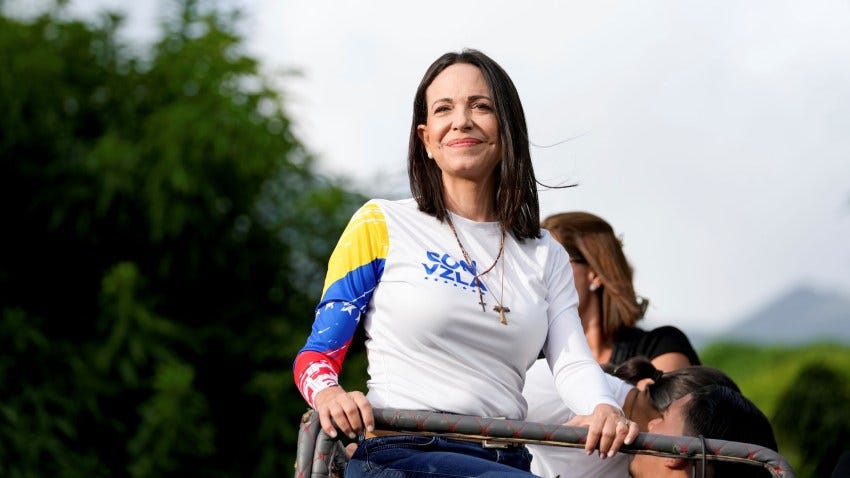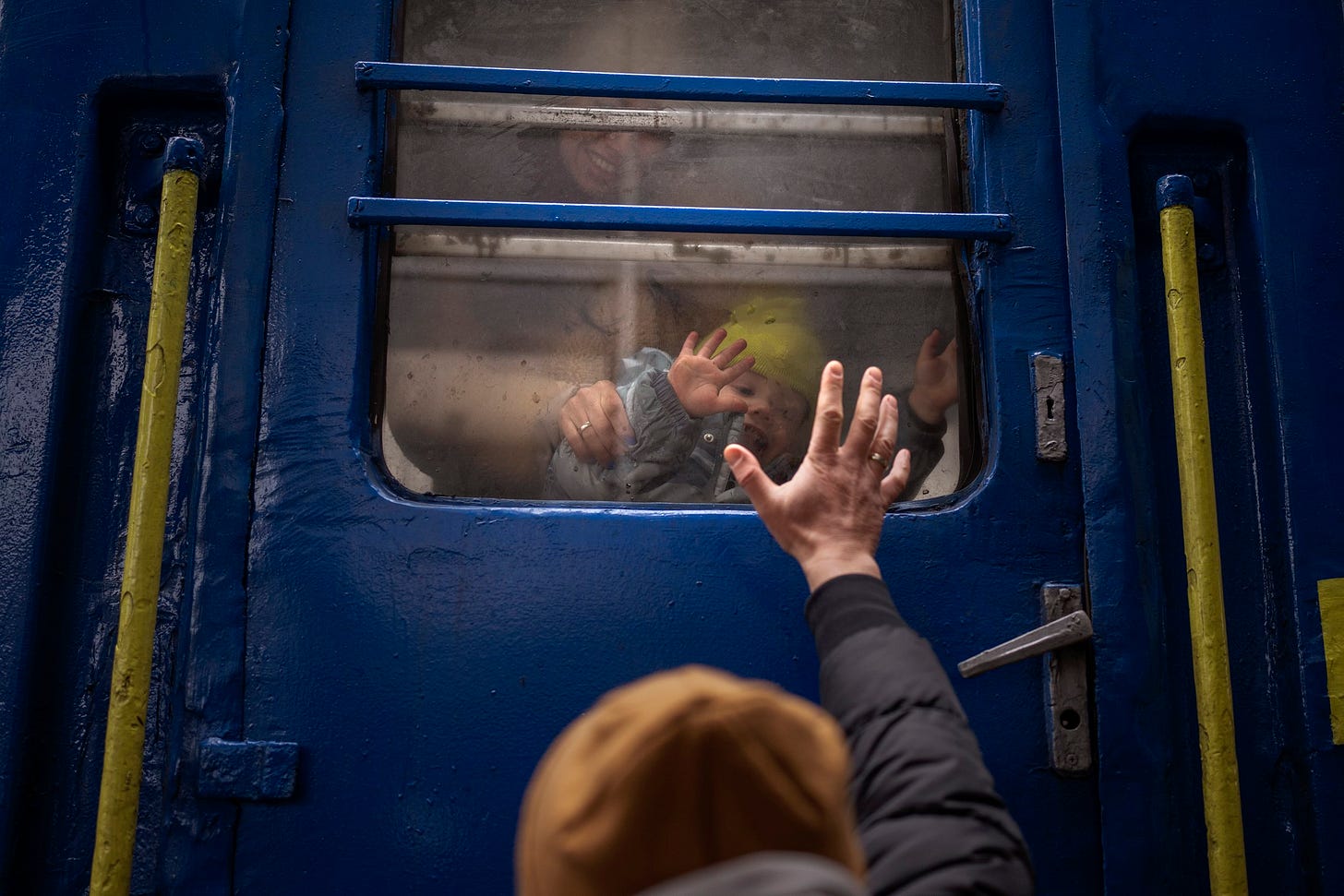“In the spring of 1974, Patrick Lizé’s tooth hurt. He went to see a dentist not far from the small Norman village where he lived. While being poked and prodded, Lizé, a swimming teacher, went on about his passion for marine archeology, particularly eighteenth-century shipwrecks. The dentist said that he ought to talk to his neighbor, who had just been diving in the Mediterranean for Greek and Roman relics. The neighbor was an architect named Jean-Claude Lescure, and the two men bonded over their shared interest. Lizé mentioned that he’d been rummaging through dusty files in the National Archives, scoping out possible shipwrecks. He’d homed in on a promising candidate: the Prince de Conty, which, if he was right, was lying, forgotten and untouched for two centuries, off the coast of Belle-Île. Lizé had unearthed the Guillois report, which inventoried the Prince’s bounty. He also had a plan of the site—’a veritable treasure map, in short,’ he later wrote, in a memoir. He and Lescure decided that they and their families would spend their holidays on Belle-Île that summer. As its name suggests, Belle-Île is beautiful and isolated. The largest of Brittany’s islands, it is only about ten miles long and five miles wide. The weather there, in Breton fashion, is infinitely changeable, the emerald seas and sapphire skies of one minute giving way, the next, to a horizonless gray murk. The island is said to have ‘two faces’—a northern coast with sandy beaches and a far more rugged southern one, with sheer cliffs and a wild, churning sea. The wind has whittled the island’s rocks into surrealistic forms. Even in summer, it can blow hard enough that foam sprays over the clifftops, making it look like it’s snowing. Claude Monet was so enchanted by Belle-Île that he painted some forty pictures there. He wrote that he felt ‘powerless to render the intensity’ of the ocean. Lizé and Lescure arrived on the island in August and travelled to the area indicated by the archival documents, a discreet cove known as Port Lost-Kah. (The name means ‘cat’s tail’ in Breton.) ‘We threw on our wetsuits with indescribable impatience, donned our equipment, and jumped into the history-charged water,’ Lizé later wrote. They dove for twenty-eight days and found nothing of interest. But Lizé was determined, searching, he wrote, ‘every hole, every fault, every crevice, every crack, lifting every stone.’ Finally, after nearly a month of failure, they cleared some algae and felt a bulge on the ocean floor: a cannonball! The discovery of some sappanwood and shards of porcelain confirmed that they were hot on the trail of the Prince.” (Lauren Collins/TNY)
“The subtle signs that Ukraine is willing to engage diplomatically with Russia continue to increase. This week, Ukraine’s Minister of Foreign Affairs, Dmytro Kuleba, traveled to China for the first time since Russia’s 2022 invasion to meet with Chinese Foreign Minister Wang Yi. ‘I am convinced that a just peace in Ukraine is in China's strategic interests, and China's role as a global force for peace is important,’ Kuleba said during the meeting. Following the meeting, the Ukrainian foreign ministry put out a statement saying that Kyiv was ‘ready to engage’ with Russia if Moscow was prepared to do so ‘in good faith,’ but that so far they had seen no indication that Russia was ready to do so. The meeting between the two top diplomats follows reporting from earlier this month that Ukraine would be willing to invite Russian representatives to its next peace summit, which Kyiv hopes to organize for later this year. Beijing was notably absent from the last summit in Switzerland in June, refusing to participate due to Moscow’s absence. Convincing Beijing to join the summits and endorse a version of Ukraine’s ‘peace formula’ has been a key aim of President Volodymor Zelensky’s foreign policy. When China released its own peace plan in February 2023, Ukraine’s reaction was cautiously optimistic, and more welcoming than the United States or Western partners were of the plan. Ukraine’s urgency to engage with China as a potential mediator has perhaps increased due to uncertainty over whether the U.S. and the West are really in it for the long term. According to a New York Times report on the Kuleba-Wang meeting, Kyiv recognizes that a diplomatic process without Beijing will be unlikely to succeed, since China may be the only country with sufficient leverage over Moscow to push it to the table. Moscow may also be willing to welcome Beijing as a player. ‘The message itself can be said to be in unison with our position,’ Kremlin spokesman Dmitry Peskov told reporters in response to Kuleba's remarks about future negotiations. ‘You know that the Russian side has never refused to negotiate, has always maintained its openness to the negotiation process, but details are important here that you and I do not yet know.’ The continued interest in mediating a peace between Ukraine and Russia is the latest sign of China’s efforts to become a diplomatic power.” (Blaise Malley/Responsible Statecraft)
“For more than 10 years, Abu Mohammad has been living in a tent with his family in northern Syria, displaced by the long-running civil war. Unable to earn enough to support them, he, like hundreds of others, has decided to travel via Turkey to Niger to work as a mercenary. Abu Mohammad (not his real name), who is 33, and his wife have four young children - they have no running water or toilet and rely on a small solar panel to charge his phone. Their tent is sweltering in summer and freezing in winter, and leaks when it rains. ‘Finding work has become extremely difficult,’ he says. He is a member of Turkish-backed opposition forces that have been fighting President Bashar al-Assad for more than a decade. The faction he works for pays him less than $50 (£40) a month, so when Turkish recruiters appeared offering $1,500 a month to work in Niger, he decided it was the best way to earn more money. He says Syrian faction leaders help facilitate the process and after ‘faction taxes and agents’ he would still be left with at least two-thirds of the money. ‘And if I die in battle [in Niger], my family will receive compensation of $50,000,’ he adds. Violence in West Africa's Sahel region has worsened in recent years as a result of conflict with jihadist groups. Niger and its neighbours Mali and Burkina Faso have all been affected - and all three countries have experienced military coups in the past few years, partly as a result of the instability.” (BBC Arabic)
“It’s been an exciting week for Kamala Harris. On Sunday, Joe Biden dropped out of the presidential race and endorsed his vice-president. In the ensuing days, she has quickly locked up the Democratic nomination as every potential rival endorsed her. And while it’s early yet, there’s now enough polling data to indicate that it’s a brand-new race — with Democrats obtaining some badly needed momentum and perhaps some new avenues for victory. When Biden dropped out on July 21, he was trailing Donald Trump by 3.2 percent in the FiveThirtyEight polling averages and by 3.1 percent in the RealClearPolitics averages. FiveThirtyEight hasn’t posted averages with Harris, but RCP has her trailing Trump by 1.9 percent, and that’s with two outlierish polls from Rasmussen and Forbes-HarrisX giving Trump big leads (7 percent and 6 percent, respectively). Perhaps more significant are the trend lines in major polls taken before and after the Biden-Harris switch … A separate poll of Georgia from Landmark Communications also showed a close race there with Trump leading Harris by one point (48 percent to 47 percent). And a separate poll of Pennsylvania from NSOR–American Greatness showed Trump up by two points in that state (47 percent to 45 percent). There is growing evidence that (as Democrats had hoped) Harris is doing significantly better than Biden among the young, Black, and Latino voting categories on which the Biden-Harris 2020 win depended. In the new Times-Siena poll, she leads Trump among under-30 likely voters by 59 percent to 38 percent, among Black likely voters by 72 percent to 19 percent, and among Latino likely voters by 60 percent to 36 percent. A new Axios–Generation Lab poll of 18-to-34-year-old voters showed Harris expanding a six-point Biden lead (53 percent to 47 percent) to 20 points (60 percent to 40 percent). All these trends could help Harris put Sun Belt states (particularly Georgia) back into play after Trump has held big leads for months.” (Ed Kilgore/NYMag)
“Rupert Murdoch wants to orient his galaxy around one son. A fight has erupted over how power over the media mogul’s empire, which includes Fox (FOXA.O), opens new tab and News Corp (NWSA.O), opens new tab, will be split among four of Murdoch’s children after his death. For independent shareholders, the question of familial fairness is a sideshow. What matters more is stability and predictability, and for that, one head is better than many. Murdoch, 93, is trying to change the terms of a family trust in a Nevada court, the New York Times reported, opens new tab on Wednesday, so that his son Lachlan becomes the unchallenged ruler of the family domain. The trust controls 43% of the vote of broadcast and sports company Fox, and 40% of newspaper-owning News Corp, which operates the Wall Street Journal, HarperCollins book publisher and real estate assets. Upon Murdoch’s death, the trust passes equal voting rights from Murdoch to four of his children including James, who once served as CEO of Fox predecessor Twenty-First Century Fox. But Murdoch wants Lachlan to have ‘permanent exclusive control’ over Fox where he serves as chair and chief executive, according to the New York Times, in part to maintain Fox News’ conservative views and prevent any ensuing battles over political matters.” (Jennifer saba/Reuters)
“The Justice Department has charged a North Korean military hacker for allegedly extorting hospitals and health care providers in the U.S. through a cyber espionage campaign. Rim Jong Hyok, who allegedly works for the North Korean military intelligence agency known as Reconnaissance General Bureau, targeted hospitals and health care providers with ransomware attacks and then used the proceeds from the ransomware attacks for more hacking operations targeting defense technology and government entities, according to DOJ officials. On May 4, 2021, Hyok gained access to Kansas Hospital and used malware to encrypt the hospital's server, officials said. ‘All your important files were encrypted on this computer,’ the ransom note left on the hospital's servers allegedly said. ‘If you want to restore your files, you will need to make the payment.’ The note threatens to post the files on the internet and he says once the payment is complete they will restore their files. On May 12, the ransom was paid through Bitcoin. Hospitals and health care networks targeted by the North Koreans are Arkansas Healthcare Company, Connecticut Healthcare Company, Florida Hospital, and Colorado Medical Clinic.” (Luke Barr/ABC News)

“This Sunday, Venezuelans will go to the polls for a presidential election that will be closely watched around the world. If it is respected, the outcome will in all likelihood result in a victory for opposition candidate Edmundo Gonzalez Urrutia. But few observers expect President Nicolas Maduro and his repressive regime to leave quietly. Indeed, there are widespread concerns he will try to manipulate the results or, if the margin of Gonzalez’s victory is too great, simply disregard them and rely on the military and security forces to stifle any protests that follow. By all rights, Maria Corina Machado should be the opposition candidate on Sunday. She overwhelmingly won the opposition’s primary last year and is the galvanizing force behind the unified coalition’s campaign. But she was banned from running by the government, one of many ways in which Maduro has tried to tilt the playing field in his favor. Machado spoke with Mie Hoejris Dahl, who is in Venezuela to cover the election and its aftermath, about the opposition’s priorities for rebuilding Venezuela after decades of government mismanagement; the tensions it must navigate in balancing justice and accountability with the need for a negotiated transition; and how she and Gonzalez will distribute the responsibilities of governing if he were to take office.” (Mie Hoejris Dahl/WPR)
“Former President Donald Trump’s effort to cement his candidacy with the cryptocurrency industry – and shake it for campaign cash — is starting to be complicated by a new X factor: the ascension of Kamala Harris. Trump’s Saturday appearance at the Bitcoin 2024 conference in Nashville is the latest sign that a second Trump term would likely usher in policies friendly to digital asset firms. It comes as major crypto companies and their investors are poised to spend tens of millions of dollars to influence this year’s elections. Industry players expect Trump’s speech this weekend to focus on boosting bitcoin mining in the U.S. and preventing the Federal Reserve from creating its own digital currency — both in line with the GOP platform released earlier this month. Some crypto enthusiasts are hoping Trump will go even further by endorsing a plan for the government to establish a strategic reserve of bitcoin. ‘It gives the Trump embrace of crypto increasing bona fides,’ said J. Christopher Giancarlo, who earned the name ‘CryptoDad’ when he served as chair of the Commodity Futures Trading Commission, under Trump. But a potential new challenge looms from the rise of Harris. Trump has framed his crypto pitch as an attack on President Joe Biden, whose regulators have cracked down on the industry. Now with the campaign undergoing a big reset, crypto-friendly Democrats are hopeful that Harris will usher in a softer approach. Though she hasn’t taken a position on digital asset regulation as VP, crypto advocates point to her age and roots in tech-friendly California as reasons to be optimistic.” (Jasper Goodman/Politico)
“By the time I was born, in 1984, Sesame had grown. There were more Muppets, including the Count, Snuffy, Elmo, and my personal favorite, Grover, and more humans, including Luis, Maria, Linda, and Gina. There was merch: I took some early steps in Bert and Ernie slippers. And there were studies bearing out what the show’s creators had always claimed: watching Sesame Street could help little kids learn to read and count, improving their chances of success in school and potentially their entire lives. I watched Sesame Street every morning in my Bert and Ernie slippers and my jammies, sitting as still as I could in the rocking chair, hoping against hope that the cat would join me. My mom had watched Sesame Street with both of my older sisters, and she liked watching it with me, too, which was no accident. The creators knew the value of co-viewing for children’s development, and they wrote the show to entertain parents as well as kids, with on-the-nose parodies of contemporary prime-time TV (among the most memorable, Miami Mice and Monsterpiece Theater), celebrity appearances (Judy Collins sang the alphabet with Snuffy; Jesse Jackson recited poetry on a stoop), and recurring sketches (who could forget Grover as the incompetent restaurant waiter?). Obviously, the Muppets, with their strangely expressive mouths and sophisticated sense of irony, were preferable to any cartoon, and particularly to the Disney-princess franchise—in which any human mom can recognize certain heteronormative toxins, of which my mom, child of one bad marriage, party to another, then finally and perhaps hesitantly in the one that would last, was perhaps even more acutely aware. She dressed all her daughters in overalls. One year she sewed me a cape like the one Grover wore to play Super Grover. My first salaried job, in 2008, was at an uptight nonprofit run by an oil family in Washington, D.C. I disliked the job, which required me to wear nylons and organize policy ‘convenings,’ the point of which I could not see, and I hated D.C., where irony seemed to have been smothered by earnest, middlebrow ambition. I wanted to move to New York, and I often took the bus up for the weekend. Coming back one Sunday, in the middle of Union Station, I saw an exhibition about Sesame Workshop: it, too, was a nonprofit, which I now considered my area of expertise; surely it wouldn’t require nylons; and it occurred to me that I should try to get a job there. After a couple of tries, I did. It was 2010, and I was twenty-six years old. As an employee, my relationship with the Muppets became complicated.” (Jane Breakell/The Paris Review)
“On Thursday, following her meeting with Israeli Prime Minister Benjamin Netanyahu, Vice President Kamala Harris sent a message not only to Netanyahu but to the world. The meeting with Netanyahu presented many challenges for the presumptive Democratic nominee for the presidency. First, there was the complex reality of the Biden Administration’s strained relationship with Netanyahu. Next, there was Netanyahu’s history of trying to upstage his American hosts and of meddling in U.S. domestic politics. In addition, Harris faced the difficult task of both communicating that she was her own woman with her own views on the Israel-Gaza situation while at the same time respecting that until January U.S. foreign policy will continue to be set by President Joe Biden. Harris managed to do all those things. Indeed, her statement following the Netanyahu meeting was pitch perfect illustrating strong support for the state and the people of Israel while communicating concerns with the policies and actions of the current Israeli government, showing compassion for and a commitment to the humanitarian needs of the residents of Gaza. It was a bit of a high wire act and yet she also had to come across as resolute. After all, Netanyahu was the man whose arrogance about his role and that of Israel relative to the United States once led President Bill Clinton to explode, ‘Who the fuck does he think he is? Who’s the fucking superpower around here?’ Following Harris’ performance, her first high-profile international assignment since assuming the role of Democratic Party standard-bearer, there was no mistaking he was in charge or her deftness at managing a difficult situation. In her statement following the meeting, Harris said, ‘Israel has a right to defend itself, and how it does so matters.’ ‘The images of dead children and desperate, hungry people fleeing for safety, sometimes displaced for the second, third or fourth time — we cannot look away in the face of these tragedies. We cannot allow ourselves to become numb to the suffering, and I will not be silent.’” (David Rothkopf)
“Archaeologists didn’t know what to expect when they began searching for a 2,700-year-old Assyrian sculpture that had last been seen decades before. First documented in the nineteenth century and excavated in the early 1990s, the massive statue was subsequently reburied to protect it from turmoil in northern Iraq that threatened the site. By 2023, the political situation in the region had stabilized, allowing archaeologists to return. As an Iraqi-French team removed 30 feet of debris, the figure’s fine details gradually reemerged. There were rows of delicately overlapping feathers, the hanging curls of a man’s beard, and the cloven hooves of a bull, all skillfully carved from shining white alabaster. The sculpture, which stood 12.5 feet tall and weighed nearly 20 tons, represented a lamassu, an Assyrian deity with a human head and a winged bull’s body. Given the intense events that had occurred around the site, it was a marvel that the sculpture remained in such good condition.” (Jason Urbanus/Archaeology)






